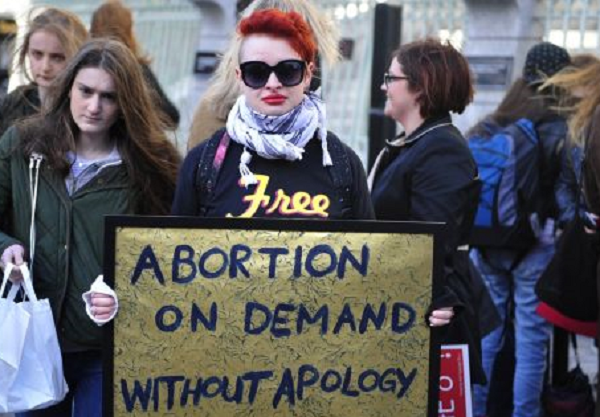Does religious freedom allow individuals to kill an innocent human being if they believe it is morally okay to do so?
That is what a group of abortion activists essentially argue in a case challenging the Indiana ban on elective abortions.
On Tuesday, Hoosier Jews for Choice and four women won an initial victory when Marion Superior Judge Heather Welch certified their pro-abortion case as a class action lawsuit, The Times of Northwest Indiana reports.
Welch’s decision means that if a judge rules in the abortion activists’ favor, the Indiana pro-life law would not apply to any woman who says she wants to abort her unborn baby for religious reasons.
The lawsuit claims the state abortion ban prohibits women from exercising their religious beliefs in violation of the Religious Freedom Restoration Act, which prohibits the government from interfering with the exercise of religious beliefs unless it has a compelling interest in doing so (such as protecting human lives). The case mentions abortion supporters of the Jewish, Islamic, Christian and pagan religions.
The Indiana pro-life law currently is blocked by a court order and abortions are allowed for any reason up to 20 weeks. But pro-lifers hope the Indiana Supreme Court will rule in favor of the life-saving law soon.
Click here to sign up for pro-life news alerts from LifeNews.com
Meanwhile, abortion activists are trying various strategies to keep the law blocked, including religious freedom challenges. Last fall, the Satanic Temple filed a lawsuit making a similar religious freedom argument. The satanic group believes killing unborn babies in abortions is a religious “ritual” and likens it to communion or baptism for Christians. In 2020, it even raffled off an abortion to raise money for its lawsuits.
Here’s more from the report:
Class certification was opposed by Republican Attorney General Todd Rokita. He said there’s no objective way to figure out who is motivated by religious reasons to seek an abortion, and determining the scope of the law’s burden on a person’s sincere religious beliefs only can be assessed on a case-by-case basis. …
Welch said the case ultimately hinges on whether limiting abortion services is a substantial burden on religious practices, but every person who is pregnant, may become pregnant, or takes action to avoid becoming pregnant is in the same position relative to the statute — making class certification appropriate.
In an initial response to the lawsuit last fall, Rokita said religious beliefs do not entitle anyone to end another innocent human being’s life.
“Rather than avoid unwanted medical treatment or duties imposed by law that would impinge their religious exercise, Plaintiffs use religious beliefs to demand medical intervention to end human life,” the attorney general’s office wrote. “The state is aware of no case in America holding that a religious belief entitles someone to medical intervention of any kind, much less intervention that ends human life. Such a claim would also seem to extend, for example, to physician-assisted suicide.”
But abortion activists with Hoosier Jews for Choice argue that they should be allowed to abort their unborn babies because of their religious beliefs.
“For example, under Jewish law, a fetus attains the status of a living person only at birth,” the lawsuit argues. “Jewish law recognizes that abortions may occur, and should occur as a religious matter, under circumstances not allowed by (the near-total abortion ban) or existing Indiana law,” such as to prevent a “mother’s mental anguish.”
This is not a belief that all Jews hold. Other Jewish leaders say the opposite, that their faith condemns abortion and recognizes babies in the womb as valuable human beings.
The Indiana pro-life law protects unborn babies by banning almost all abortions. Exceptions are allowed in cases of rape, incest, fatal fetal anomalies or risks to the mother’s life.
In September, a judge temporarily blocked the law in response to a third lawsuit by several abortion facilities.
Pro-life leaders estimate the law, if enforced, will save about 161 babies from abortion every day.








